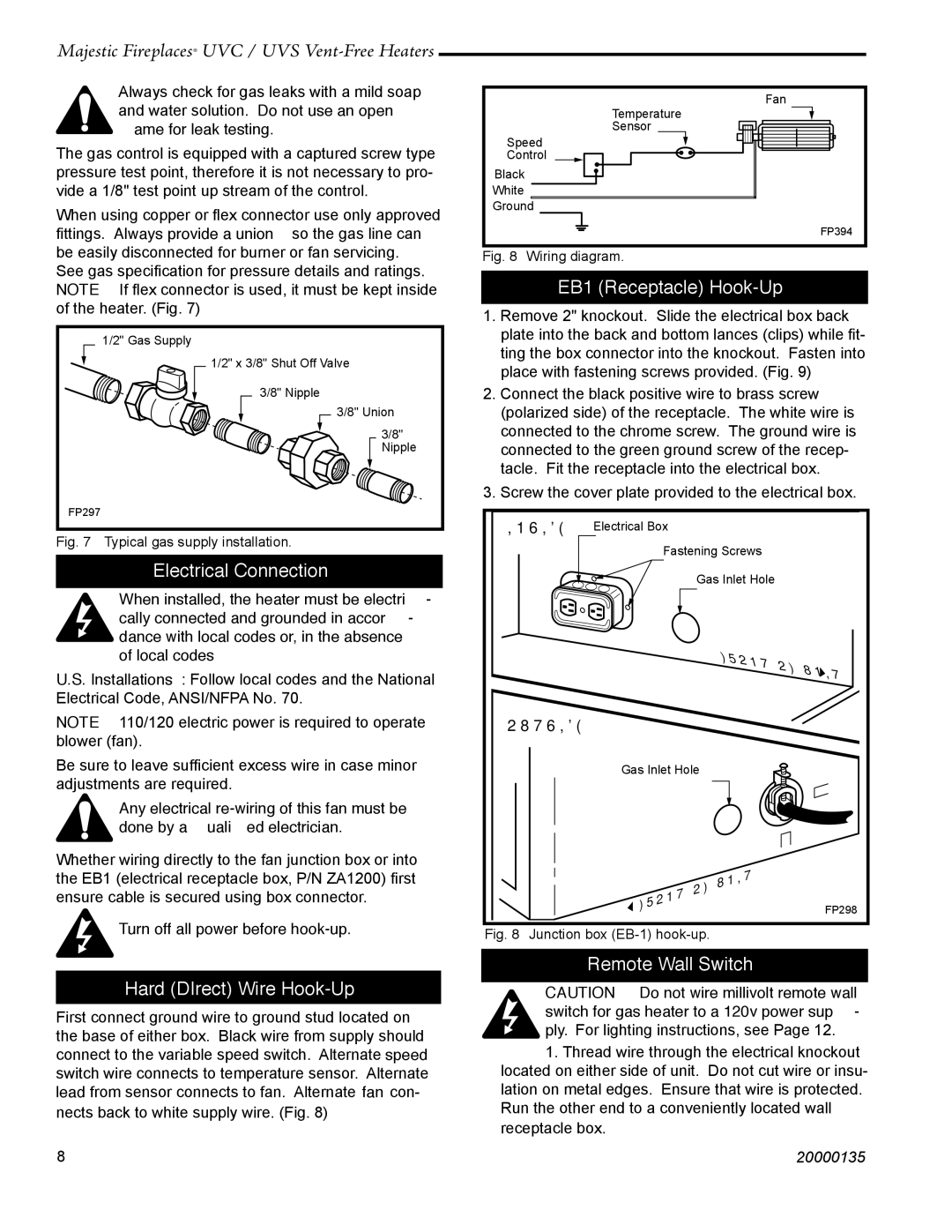UVC43, UVC36, UVS36, UVS43 specifications
CFM International has made significant advancements in the field of avionics with its cutting-edge line of aircraft engines, including the CFM UVS43, UVS36, UVC36, and UVC43 models. These engines are designed to enhance performance, reliability, and efficiency, catering to a broad spectrum of aviation needs.The CFM UVS43 is engineered for high-performance applications, offering exceptional thrust and fuel efficiency. Its advanced materials and aerodynamic design allow for reduced weight and increased durability. The UVS43 employs state-of-the-art technologies, including a full-authority digital engine control (FADEC) system which optimizes engine performance by intelligently adjusting parameters in real-time.
Similarly, the UVS36 model is known for its versatility and adaptability in various aviation platforms. The engine incorporates a unique dual-spool design that provides improved efficiency at different altitudes and speeds. The UVS36 is equipped with advanced noise reduction technologies, ensuring compliance with stringent environmental regulations without compromising on performance.
The CFM UVC36 is another standout in the CFM engine lineup, designed specifically for regional aircraft. It features a compact design that allows for easy integration into smaller airframes while providing reliable thrust and performance. The UVC36 employs innovative cooling technologies that enhance engine longevity and reduce maintenance intervals, making it an attractive option for operators concerned with operational costs.
On the other hand, the UVC43 is tailored for larger aircraft, offering increased power output and efficiency. This model utilizes advanced composite materials, allowing for a lighter engine that still delivers exceptional performance. The UVC43 is also notable for its improved fuel consumption rates compared to previous models, thanks to its advanced turbine and combustion chamber design.
All four engine models share a commitment to sustainability, featuring reduced emissions and noise levels while enhancing operational efficiency. The integration of cutting-edge computer modeling and simulation techniques during the design phase has contributed to optimized performance across all models. With their combination of innovation, flexibility, and reliability, the CFM UVS43, UVS36, UVC36, and UVC43 engines represent the future of aviation powerplants, meeting the demanding requirements of modern air transport while ensuring a reduced environmental footprint. As aviation continues to evolve, CFM remains at the forefront, driving advancements that shape the industry.

